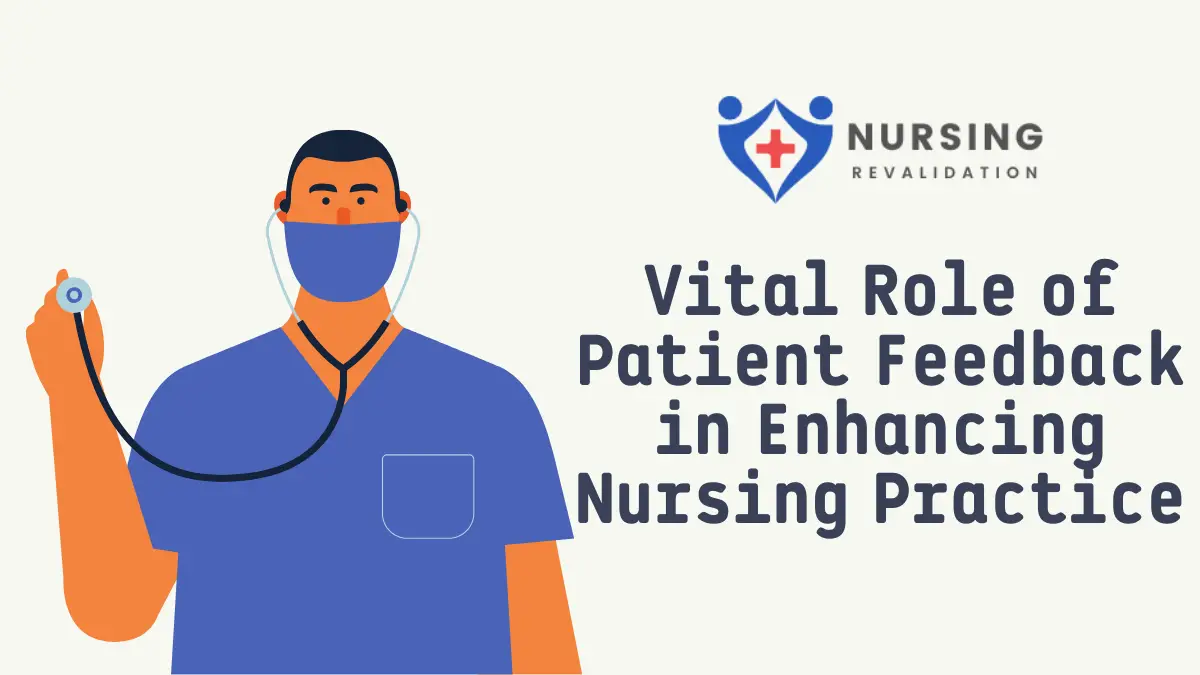Patient feedback is an invaluable asset in healthcare, providing nurses with crucial insights into the quality of care they deliver. In nursing practice, patient feedback serves as a compass, guiding professionals towards continuous improvement and patient-centered care. This article explores the significance of patient feedback in nursing practice, shedding light on its various dimensions and how it contributes to better healthcare outcomes.
Understanding Patient Feedback:
Patient feedback encompasses the opinions, experiences, and perceptions shared by individuals regarding their interactions with healthcare providers, facilities, and services. It can be solicited through surveys, interviews, suggestion boxes, or online platforms. Each piece of feedback, whether positive or negative, offers valuable information that can be used to evaluate and enhance the quality of care provided.
Table:
| Feedback Mechanism | Description |
|---|---|
| Patient Satisfaction Surveys | Regular surveys to assess patient satisfaction with nursing care. |
| Focus Groups | Group discussions to delve deeper into specific patient concerns. |
| Online Feedback Portals | Digital platforms for patients to provide feedback conveniently. |
| Staff Training | Training programs for nursing staff on effective feedback handling. |
The Impact of Patient Feedback on Nursing Practice:
Improving Communication and Trust:
Effective communication is fundamental to nursing practice, and patient feedback plays a pivotal role in fostering communication between nurses and patients. By actively seeking feedback, nurses demonstrate their commitment to patient-centered care, which in turn builds trust and strengthens the nurse-patient relationship.
Identifying Areas for Improvement:
Patient feedback serves as a mirror, reflecting the strengths and weaknesses of nursing practice. By analyzing feedback trends, healthcare institutions can identify areas for improvement and implement targeted interventions to address deficiencies. Whether it’s enhancing communication skills, streamlining processes, or improving patient education, feedback provides valuable insights for continuous quality improvement.
Enhancing Patient Experience:
The patient experience encompasses every aspect of care delivery, from the initial encounter to post-discharge follow-up. By incorporating patient feedback into practice, nurses can tailor their approach to meet the unique needs and preferences of each individual, thereby enhancing the overall patient experience. This personalized approach not only improves patient satisfaction but also contributes to better health outcomes.
Implementing a Feedback Mechanism:
Establishing an effective feedback mechanism is essential for harnessing the power of patient feedback in nursing practice. Healthcare institutions can employ various strategies to solicit feedback, including:
- Patient Satisfaction Surveys: Conducting regular surveys to assess patient satisfaction with nursing care and overall hospital experience.
- Focus Groups: Organizing focus group discussions to delve deeper into specific issues or concerns raised by patients.
- Online Feedback Portals: Creating online platforms where patients can provide feedback anonymously and conveniently.
- Staff Training: Providing training to nursing staff on how to solicit, receive, and act upon patient feedback effectively.
The Role of Technology in Facilitating Feedback:
Advancements in technology have revolutionized the way patient feedback is collected and analyzed in nursing practice. From electronic health records to real-time feedback apps, technology offers innovative solutions for capturing and utilizing patient feedback efficiently. By leveraging digital platforms, nurses can gather feedback in a timely manner, track trends over time, and implement evidence-based interventions to drive continuous improvement.
Case Study:
To illustrate the real-world impact of patient feedback in nursing practice, let’s consider the case of a large teaching hospital that implemented a comprehensive feedback program. By actively soliciting feedback from patients and caregivers, the hospital identified several areas for improvement, including communication during care transitions and pain management protocols. Through targeted interventions, such as staff training and process redesign, the hospital was able to significantly enhance the quality of nursing care and improve patient satisfaction scores.
Conclusion:
In conclusion, patient feedback plays a crucial role in shaping nursing practice and driving quality improvement initiatives. By actively soliciting, analyzing, and acting upon feedback, nurses can deliver more patient-centered care, enhance the patient experience, and ultimately improve health outcomes. As healthcare continues to evolve, embracing a culture of feedback and continuous improvement will be essential for ensuring the delivery of high-quality, patient-centered nursing care.

